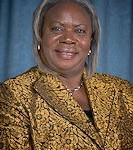At-Large Manchester Board of School Committee Member Jim O’Connell (D-Ward 2) has been one to preach about the need for “inclusion” in the city’s schools. The Irishman who immigrated to this country decades ago, only becoming a citizen less than three years ago, has been quick to indict past boards as “racist,” multiple board members as “racist,” and condemn the school system as “systematically racist.” He has defended the use of “Whiteness is Power” seminars to train employees about “being White” and trash talked employees, parents and citizens who’ve objected to its use. O’Connell has practically tripped over himself to push “diversity, equity and inclusion” policies and sprained his elbow patting himself on the back for how determined he is to correct the allegedly racist past of Manchester’s school system.
In short, Jim O’Connell is the Progressive poster child on issues of race. He says all the right things, attacks all the right people, speaks all the right talking points and virtue signals like no other. He is the example of how any White person, especially a male, should be.
But, it would seem that where O’Connell has been long on the talk about diversity, equity and inclusion, he’s shown himself short on the walk that would prove he means it.

Gonzalez
As vice-chairman of the school board, O’Connell gets to appoint the membership of special committees. He recently appointed five members to the special committee formed to search for a new superintendent of schools. In addition to naming himself chairman of the committee (no surprise there), he appointed four other progressive White Democrats: Julie Turner (D-Ward 1), Karen Soule (D-Ward 3), Nicole Leapley (D-Ward 11) and Peter Argeropoulos (D-at-Large). These appointments overlooked Jason Bonilla (D-Ward 5), a first generation American whose family hails from El Salvador, and Carlos Gonzalez (R-Ward 12), an immigrant from the Dominican Republic.
Gonzalez has been active in city politics and community organizations over the past three decades. Among other things, he’s been a high school teacher and college professor. He has tremendous insight into education and the many issues surrounding it and has nearly a lifetime of experience in Manchester to bring to the table.
Bonilla was graduated from Revere (MA) High School in 2010 and bills himself as an “advocate for change, equality, and justice (who challenges) the status quo each and everyday.” An outspoken proponent of Black Lives Matter and co-founder of NH Millennials of Color, Bonilla was quoted in a Union Leader story just prior to his being nominated to fill the vacancy created by the resignation of Jeremy Dobson, saying:
Bonilla
“It’s time for younger individuals of color to take the stand and to have these stories and to have our voices heard. I want New Hampshire to hear my voice as well, and I want our younger generation to hear me, so that they can see that this is possible…(we need to have) tough conversations on why students of color don’t have the same opportunities and access (as White students do.) You just can’t put us in a place and then expect everything to just go smoothly without acknowledging my humanity, acknowledging our history and being cognizant of the racial tensions that we have in this country.
In other words, Bonilla sees and presents himself generally as a spokesman for the cause of diversity, equity and inclusion.

Scannell:
Perhaps, like former school board member Mary Georges (D-Ward 3), Bonilla and Gonzalez failed to properly reflect the White progressive view of diversity and equity when they voted against O’Connell’s nomination of assistant superintendent Jennifer Gillis to serve as interim superintendent of schools. Georges, an immigrant from the Democratic Republic of Congo, who has lived and been active in Manchester for decades, was targeted for defeat by progressive groups like the Granite State Organizing Project (GSOP), run by White progressives, who faulted her for opposing their so-called diversity initiatives. In short, she was accused by White progressives like GSOP and former school board member David Scannell (D-Ward 2) of being, as radical progressive “Squad” member Congresswoman Ayanna Pressley once put it, essentially a “brown face that didn’t want to be a brown voice.” Georges lost by 10 votes to Soule, another White progressive champion of diversity.
O’Connell was called out on this hypocrisy during the February 17, 2022 edition of the Girard at Large TV Show, which airs Thursday nights live from 7:00 to 8:00 on Manchester Public TV Channel 23. The commentary starts at 14:58 in the video below. Immediately following the show, O’Connell went on his own TV show, Education Matters, to announce changes to the superintendent search committee. He said that Turner had agreed to step down to allow him to appoint Bonilla.

Georges
That O’Connell would respond to the charge that he failed to practice what he preached by asking one member to resign so he could appoint someone based on their racial or ethnic background begs a number of questions. Why weren’t either Bonilla or Gonzalez appointed in the first place? O’Connell may have had perfectly legitimate reasons for the appointments he made or didn’t make. If he did, he should share them so that the public can learn and understand his thinking. Did O’Connell intentionally exclude Bonilla or Gonzalez? If so, was it because of their background or their vote against his preferred choice for superintendent?
In light of this sudden and unexpected change, it seems clear that Bonilla was appointed because he’s not White. If this is a correct, does it violate any of the district’s non-discrimination policies? After all, if excluding someone because of their race, ethnicity or gender is discrimination, doesn’t including someone for those same reasons constitute discrimination against those who don’t have the desired or preferred racial, ethnic or gender characteristics?
What this sad episode points out is that it’s dangerous to judge books by their covers. For all the “diversity” O’Connell’s original appointments lacked, the most glaring was “diversity of thought.” Four of the five appointments to the superintendent search committee had prejudiced themselves by their vote for Gillis to be the interim superintendent. Even to the casual observer, that’s a stacked deck which will call into question the final result of the search if (when) Gillis is made permanent. Even with Bonilla, this group lacks diversity of thought and perspective on how government schools should operate. Don’t expect they will advance a superintendent nominee that won’t reflect their perspective to the exclusion of all others.




![Non-academic Surveys and the Illusion of Anonymity [SB320]](https://www.girardatlarge.com/wp-content/uploads/2016/03/Paper-by-Steve-Guzzardi-on-Flickr.jpg)